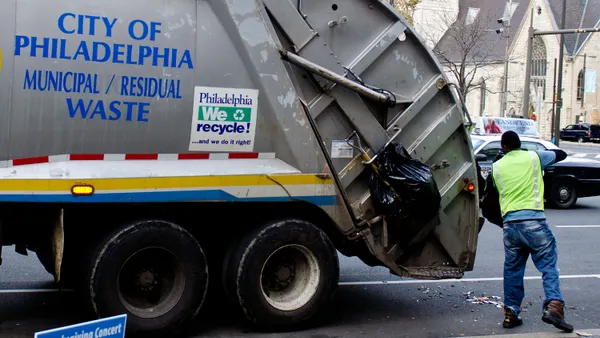Dive Brief:
- Two "smart" in-home trash cans were introduced last week at CES 2017, a global consumer electronics and consumer technology tradeshow held in Las Vegas.
- Whirlpool announced the Zera Food Recycler, an in-home bin that can turn a week's worth of food scraps into fertilizer, as reported by Waste Today. The appliance works with "a simple push of a button" and can be remotely operated through a mobile app.
- The GeniCan, led by Rob Griffin and David Pestka, was also introduced to allow consumers to keep track of the items they are tossing in waste or recycling bins. The small barcode scanning and voice recognition device can be placed in any existing waste bins, and each item that is scanned on the barcode will be added to a grocery list order that the consumer can then submit through Amazon.
Dive Insight:
While these trash bins are consumer-focused and will likely not impact the way that many industry professionals operate on a day-to-day basis, they allow consumers to revolutionize the way that they think about trash and recyclables — which is just part of the solution toward increasing diversion rates and decreasing contamination in the waste stream.
Whirlpool's Zera Food Recycler will not only keep organic materials out of the landfill, but will also offer a composting solution to consumers who are not offered organics collection through their hauler. This slim, chic bin is also appealing to consumers who wish to keep their composting somewhat "hidden" among other kitchen devices, however the current $1,199 price tag on the bin may cause most consumers to stick to traditional worm composting bins.
While the GeniCan's functionality is most useful for retail purposes, the concept of allowing consumers to keep track of the waste that they throw out could have some psychological benefits for waste diversion. In the same nature that a "food journal" may be useful for men and women who wish to lose weight, a "waste journal" (or, the list that the GeniCan produces with each scanned item) could cause consumers to reflect on the trash that they generate and consider minimizing the amount of materials that are consumed daily.










